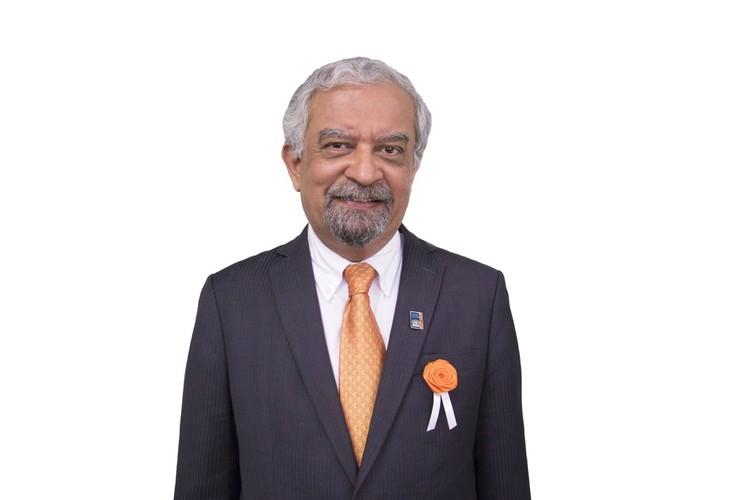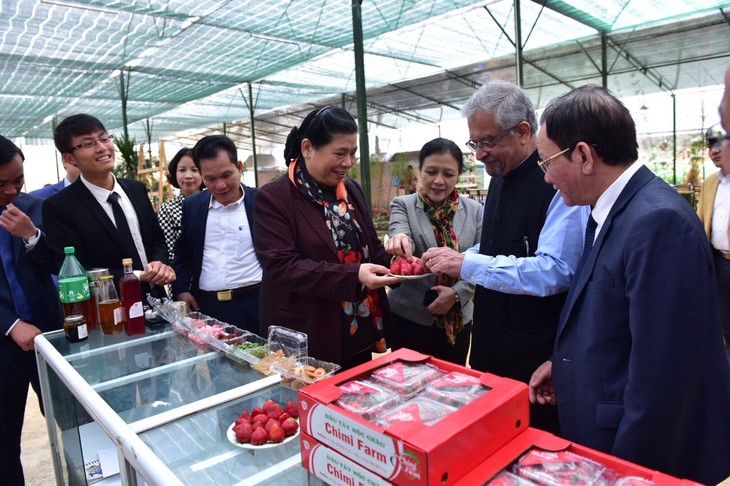(VOVWORLD) - On June 26, 1945, the United Nations adopted its charter, a constituent treaty, and all members are bound by its articles. Since joining the UN in 1977, Vietnam has contributed to, and received much assistance from, the UN. Its prestige in the international arena has grown. Mr. Kamal Malhotra, UN resident Coordinator in Vietnam, talks with a VOV reporter about the UN’s support for Vietnam since the signing of the UN Charter 74 years ago.
Reporter: Could you please give us your assessment of the partnership between Vietnam and the UN to date?
Kamal Malhotra: Well, Vietnam and the UN have a long history of over 40 years now since the time that Vietnam joined the United Nations in 1977. I think that we help Vietnam through every face, from post-war reconstruction through the “doi moi” period and setting its legislation and the period of Millennium Development Goals and now through the period of sustainable development goals. I think our relationship has been very fruitful. Vietnam has been a very good multilateral citizen and I think Vietnam is increasingly showing that aside from the support we have been giving to Vietnam, it is playing a broader role, both regionally and globally through peace keeping activities and now having been re-elected for the second time as a non-permanent member of the UN Security Council. So I think the relationship is a very good one and we are happy with that relationship.
 UN resident Coordinator in Vietnam Kamal Malhotra. (Photo: UN Vietnam) UN resident Coordinator in Vietnam Kamal Malhotra. (Photo: UN Vietnam) |
Reporter: What are the challenges for Vietnam in its development process?
Kamal Malhotra: Well, Vietnam has had very transformational economic development over the past 30 years after “Doi moi” (Renewal). I think the big challenge now for Vietnam is to move to the next stage which is more difficult than from low-income to middle-income. Moving to upper-middle country as Vietnam’s aspiration would require not just good economic indicators but also significant government reforms and I hope that will be possible. But so far Vietnam has done well, particularly in the areas of poverty reduction and universal access to primary education and lower secondary education. But it’s still a long way to go now to tertiary education. It has some gains in the area of health but there are still many challenges. It was an early achiever of the Millennium Development Goals but the Sustainable Development Goals are much more challenging and I think Vietnam will have to do much more particularly in climate change and governance if it wants to go to the next stage.
Reporter: What are the priorities of UN support for Vietnam from now until 2021 under the UN’s “One Strategic” plan?
Kamal Malhotra: Well, we have a 5-year One Strategic plan in cooperation with the Government of Vietnam for the period 2017-2021. It has focused on four big issues. One is people, particularly inclusive social services. We have focused on the planet, especially climate change, energy, and environmental issues. We have focused on prosperity, which is through, of course, economic policy and we are hoping that Vietnam will come up with a long more sustainably economic model. Finally, we have focused on governance issue, such as governance, peace, justice, and human rights. These are four big priorities that are consistent with the 2030 agenda and that is what we are working on with Vietnam right now.
 UN resident Coordinator in Vietnam Kamal Malhotra joins National Assembly Vice Chairwoman Tong Thi Phong in a visit to a green agricultural model in Son La province. (Photo: UN Vietnam) UN resident Coordinator in Vietnam Kamal Malhotra joins National Assembly Vice Chairwoman Tong Thi Phong in a visit to a green agricultural model in Son La province. (Photo: UN Vietnam) |
Reporter: Vietnam has just been elected a non-permanent member of the UN Security Council for the 2020-2021 period. What are your expectations for Vietnam in this particular role?
Kamal Malhotra: I think we are at a very challenging time globally in terms of global and regional issues. We have a divided Security Council and I think Vietnam can play a role on billing breaches between the two different sides of the divide because Vietnam is a trusted friend of all countries across the divide, especially on issues like the DPRK in which Vietnam has recently been the host of the summit between President Trump and Mr. Kim. I think Vietnam can play a constructive role in this top issue in terms of denuclearization on the Korean peninsula. In the UN Security Council, I think another issue that Vietnam can play an important role on is possibly the issue of humanitarian and political issue in Myanmar. This is the top issue in the region and the UN Security Council. Vietnam is a trusted friend of Myanmar and I think that Vietnam can play an important role on this issue. Vietnam is going to chair ASEAN at the same time it is a non-permanent member of the UN Security Council. The relationship between the regional and global bodies is something Vietnam can contribute to, like the complementary and cohesion. I think Vietnam is in the position to share the experience of post-conflict reconstruction and recovery, especially after the wars. And I think this is important, especially for countries which have just come out of conflict. And last but not least, the whole area of peace keeping is something Vietnam can increasingly contribute to because it is increasing its contributions to UN peace keeping. But I think in this area Vietnam needs to gain more experience and contribute more in the next few years.